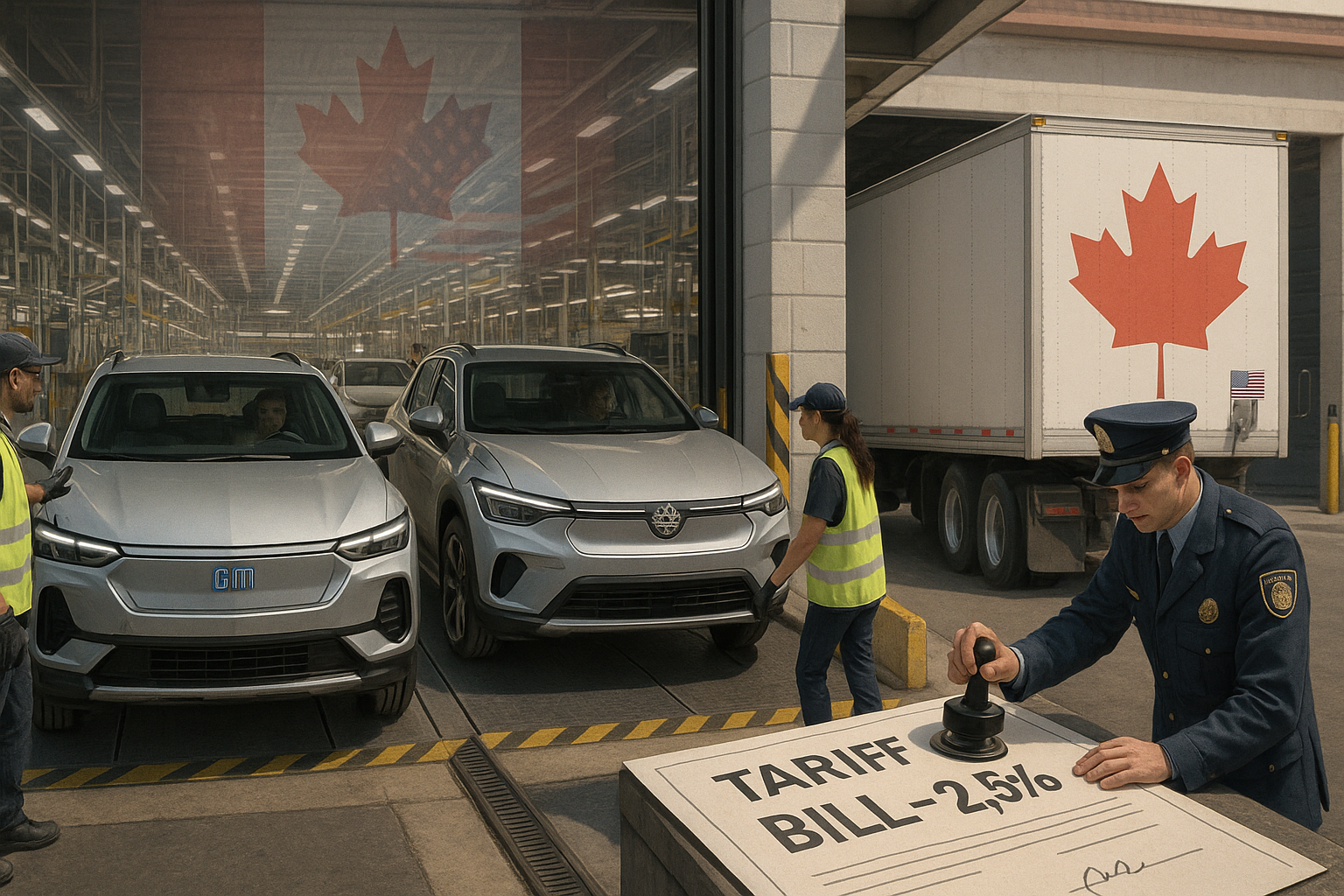General Motors and Stellantis just got smacked with some unwelcome news. Both automakers are about to lose a chunk of their tariff exemptions for vehicles built in Canada and shipped stateside, according to sources with knowledge of the situation.
I've been tracking North American auto manufacturing trends since the original NAFTA days, and this latest development isn't shocking—but the timing sure is inconvenient for these companies.
Here's the deal: For decades, automotive supply chains stretched themselves across borders like rubber bands, assuming those borders would remain essentially invisible within trade zones. Remember the grand promises of NAFTA? The supposedly upgraded USMCA? These agreements created a manufacturing ecosystem where production could hopscotch between countries without financial penalty.
But there's a catch. (There's always a catch.)
Vehicles assembled in Canada only avoid U.S. import duties when a specific percentage of the car's value comes from North American production. It's called a "rules of origin" requirement, and apparently, GM and Stellantis have been pushing their luck.
What's happening boils down to a book-keeping nightmare with real-world consequences. These companies have been importing parts from overseas, slapping them together in Canada, then shipping the finished products to American dealerships—all while expecting duty-free treatment. Now the authorities are saying, "Not so fast."
This really shouldn't surprise anyone who's paid attention. The global auto industry's supply networks resemble a plate of spaghetti more than anything logical. A typical vehicle contains thousands of components from dozens of countries. Tracking where each little widget comes from—and calculating whether the final product meets the threshold for preferential tariff treatment—would give anyone a migraine.
Look at this from two angles:
First, it shows that trade agreements actually have consequences. The USMCA isn't just diplomatic theater—it contains enforceable rules.
Second, this highlights the fundamental tension between global efficiency and national priorities. Car companies want to source parts wherever makes economic sense. Governments want jobs at home. These objectives crash into each other like... well, like cars.
For the affected automakers, we're talking about a potential 2.5% tariff on non-compliant vehicles. Doesn't sound like much, does it? But do the math: On a $40,000 crossover, that's a thousand bucks per vehicle! Multiply by production volumes and suddenly we're talking about serious money vanishing from quarterly reports.
The irony—and there's plenty of irony here—is that both companies have been pumping billions into North American manufacturing lately. GM's been shouting from the rooftops about its electric vehicle investments across the U.S. and Canada. Stellantis (that awkward corporate marriage between Fiat Chrysler and France's PSA Group) has similar ambitions. But transitions take time, and meanwhile, they're caught with their supply chains showing.
I spoke with a supply chain consultant last week who predicted exactly this kind of enforcement action. "The era of carefree globalization is ending," he told me over coffee. "Companies that don't adapt quickly will pay the price." Prophetic words, apparently.
This isn't just about two car companies, though. It's a signal flare illuminating the changing relationship between multinational corporations and increasingly assertive governments. After decades of borders becoming less relevant, we're seeing a pendulum swing back toward national interests.
For investors wondering what this means... well, I'd suggest it's more than a temporary hiccup. The regulatory landscape is shifting beneath these companies' feet, forcing a recalculation of where to build what—and with which parts.
Will consumers notice? Probably not immediately. But these kinds of adjustments eventually filter down to sticker prices and model availability.
In the end, this tariff dispute is just one more dance step in the complicated tango between global business and national politics. And from where I'm sitting, the music just got louder.
